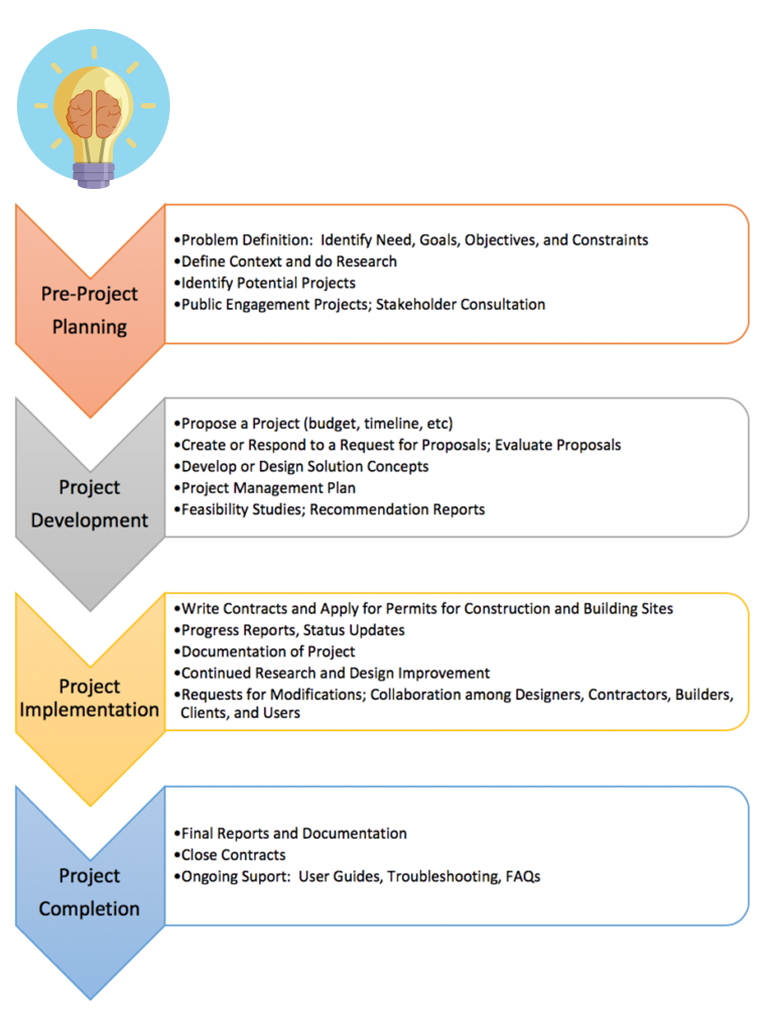Introduction: What is Technical Communication?
In our increasingly technological and internationalized workplaces, communication skills are among the most sought-after competencies employers require of job candidates. Every job posting you see will almost certainly ask for candidates with excellent communications skills and the ability to work effectively in teams. The ability to communicate clearly and effectively in written, verbal, visual, and interpersonal contexts is vital for success and advancement in the workplace. This ability is equally important in technical workplaces, where information must be conveyed using accuracy, precision, and concrete detail. Lending these qualities in your interactions with project teams will facilitate workflow.
“Technical writing comprises the largest segment of technical communication” (Giordano, n.d. 1). Broadly speaking technical writing pertains mostly to information that must be conveyed in a manner that is usable by the reader. Such writing makes complex ideas and concepts understandable and facilitates internal procedures. You will see technical writing in action in user guides, tutorials, inspection reports, standard operating procedures, and other types of documentation.
Technical communication, on the other hand, comprises all the various activities, documentation, tools, systems, and software that contribute to the creation of content that is useable within an organization (Giordano, n.d. 2). Technical writing is only one facet of the process of creating and managing complex information. Think of how we also must make decisions about visual narrative, document design, and mode of delivery, for example.
No matter how brilliant or innovative an idea may be, if it is not communicated clearly and promoted effectively to the right audience, it will not become a reality. For an innovative idea to move from concept to project to completion requires many stages in a design process (see Figure 1), almost all of which require clear communication and effective teamwork.

If the design and implementation teams cannot work and communicate effectively with each other, their final product will fail to meet its potential.
Technical Writing Essentials introduces the key elements of professional style, document design, collaboration, oral presentation, and research skills needed to design productive workplace documents and presentations for a variety of purposes and audiences.
Reference
Giordano, C. (n.d. 1). What is Technical Writing? – Tech Writer Today – TechWhirl
Giordano, C. (n.d. 2). A Strategy for Integrated Technical Communications – Tech Writer Today (techwhirl.com)
Iconfinder.com. Lightbulb image. [Online]. https://www.iconfinder.com/icons/667355/aha_brilliance_idea_think_thought_icon. Free for commercial use.
Image Description
Once there is an idea, a project goes through a design process made up of four stages.
- Pre-project planning.
- Problem Definition – identifying needs, goals, objectives, and constraints.
- Define context and do research.
- Identify potential projects.
- Public engagement projects; Stakeholder consultation.
- Project Development.
- Propose a project (budget, timeline, etc.).
- Create or respond to a request for proposals, evaluate proposals.
- Develop or design solution concepts.
- Project management plan.
- Feasibility Studies, Recommendation Reports.
- Project Implementation.
- Write contracts and apply for permits for construction and building sites.
- Progress reports, status updates.
- Documentation of project.
- Continued research and design improvements.
- Project completion.
- Final reports and documentation.
- Close contracts.
- Ongoing Support: User Guides, Troubleshooting, FAQs.

